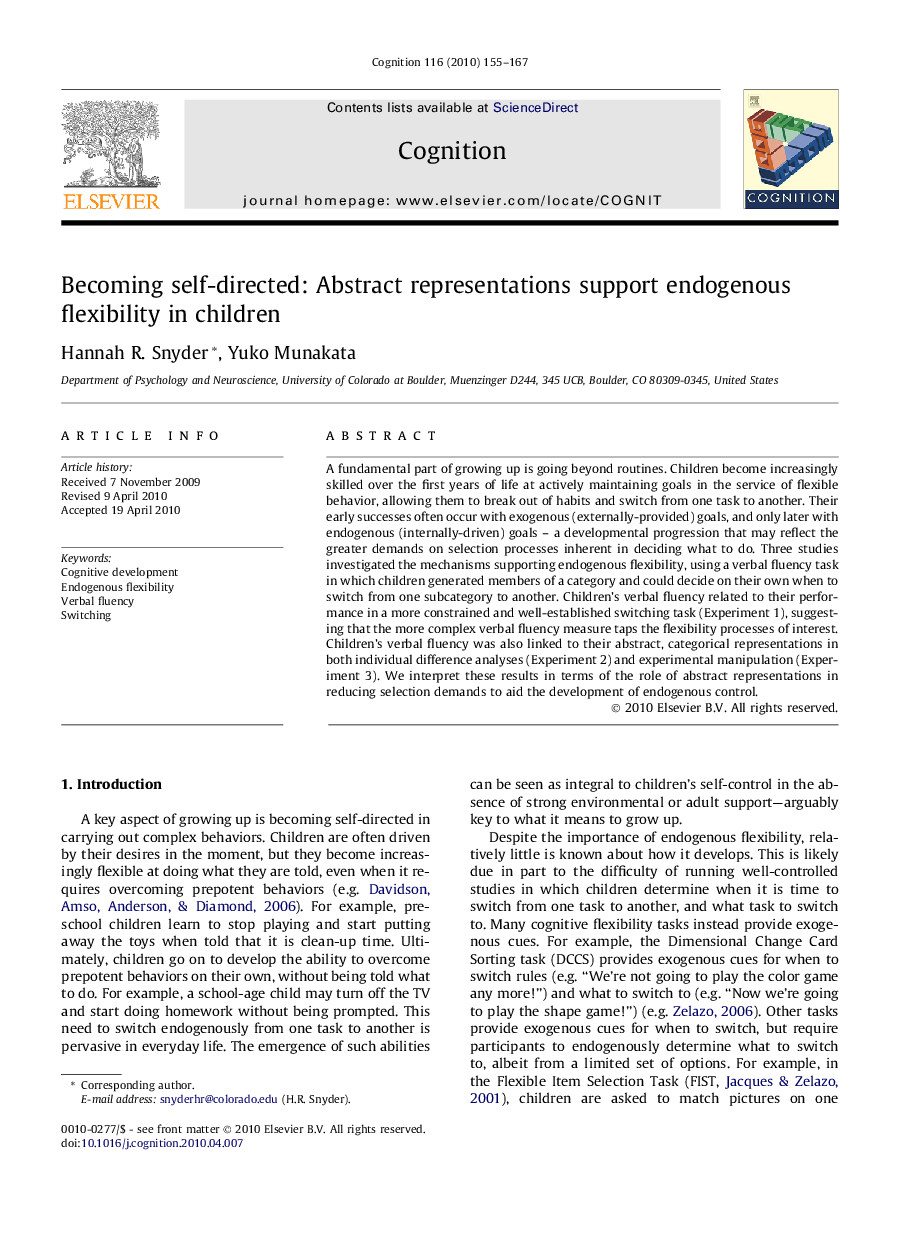| Article ID | Journal | Published Year | Pages | File Type |
|---|---|---|---|---|
| 926663 | Cognition | 2010 | 13 Pages |
A fundamental part of growing up is going beyond routines. Children become increasingly skilled over the first years of life at actively maintaining goals in the service of flexible behavior, allowing them to break out of habits and switch from one task to another. Their early successes often occur with exogenous (externally-provided) goals, and only later with endogenous (internally-driven) goals – a developmental progression that may reflect the greater demands on selection processes inherent in deciding what to do. Three studies investigated the mechanisms supporting endogenous flexibility, using a verbal fluency task in which children generated members of a category and could decide on their own when to switch from one subcategory to another. Children’s verbal fluency related to their performance in a more constrained and well-established switching task (Experiment 1), suggesting that the more complex verbal fluency measure taps the flexibility processes of interest. Children’s verbal fluency was also linked to their abstract, categorical representations in both individual difference analyses (Experiment 2) and experimental manipulation (Experiment 3). We interpret these results in terms of the role of abstract representations in reducing selection demands to aid the development of endogenous control.
